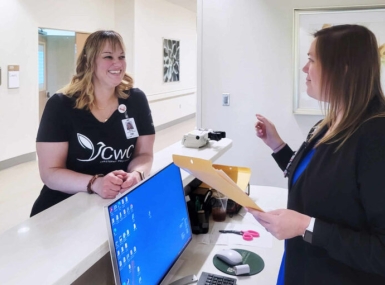DHS and DOJ publish proposed rule on requirements for asylum seekers
Author

Julia Cortina
Upcoming Events
Related News

Key Takeaways
On February 23, the U.S. Department of Homeland Security (DHS), in conjunction with the U.S. Department of Justice (DOJ), issued a Notice of Proposed Rulemaking (NPRM) that creates a “rebuttable presumption of asylum ineligibility” for individuals who enter the United States who either fail to enroll in one of the Biden administration’s new parole programs or use the CBP One app to schedule their arrival into the country.
The proposed rule is a part of broader border-enforcement measures previewed by DHS earlier this year in anticipation for the expected lifting of Title 42 on May 11, 2023. The rule is an emergency measure in response to the elevated levels of encounters expected after the lifting of Title 42 and intended to only be in place for 24 months following the rule’s effective date.
Under the proposed rule, individuals who do not utilize an established parole program or schedule their arrival through the new CBP one app will be subject to removal under Title 8 authorities (which carries a five-year bar to reentry) unless they meet specified exceptions. Exceptions include individuals who:
- Faced a language or technical barrier that posed a “serious obstacle” in operating the mobile phone app
- Demonstrate to an asylum officer or immigration judge that they (or an accompanying family member) faced an acute medical emergency; faced an imminent or extreme threat to life or safety (such as a threat of rape, kidnapping, torture, or murder); or fall under the definition of a “victim of a severe form of trafficking in persons.”
- Applied for and were denied asylum in a third country in route to the United States
Unaccompanied minors, who will automatically be transferred to the U.S. Department of Health and Human Services (HHS), are excluded from this proposed rule. Additionally, to avoid family separation, the NPRM proposes that if one family member is excepted from or rebuts the presumption, all family members will be similarly treated.
DHS and DOJ have stated that the new rule is intended to encourage migrants to seek lawful, safe and orderly pathways to the United States. Criticism of the rule includes that the CBP one app is only available in five languages (English, Spanish, Haitian Creole, Portuguese, and Russian), and that users are experiencing technical difficulties since its launch in January 2023.
Stakeholders are invited to submit comments through www.regulations.gov by 11:59 p.m. EDT on March 27, 2023. You can read the full text of the proposed rule here.
Related News
King County school offers students a route to sobriety
The Interagency Recovery Campus, funded in part by King County, Wash. Behavioral Health and Recovery, fosters an environment to support students' paths to sobriety.

Urban opioid education moves to rural counties
A hospital program in Fulton County, Ga. that educates patients on opioids, and is working to prevent misuse and dependency at the source, is expanding to four rural counties in Georgia.
